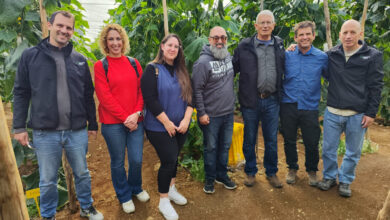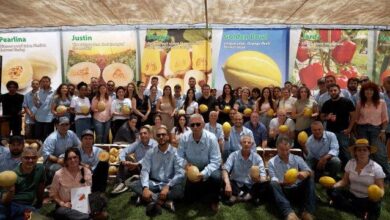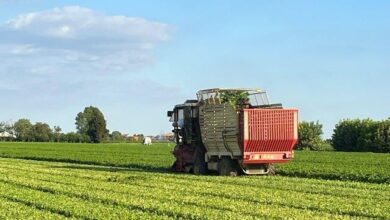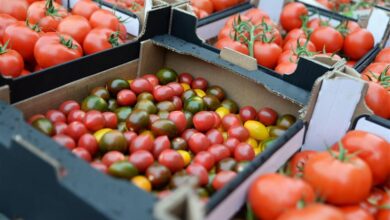Innovation is planted in our genes
We develop new varieties from the natural diversity with seed breeding
New Hazera Seeds R&D head Dr. An Michiels
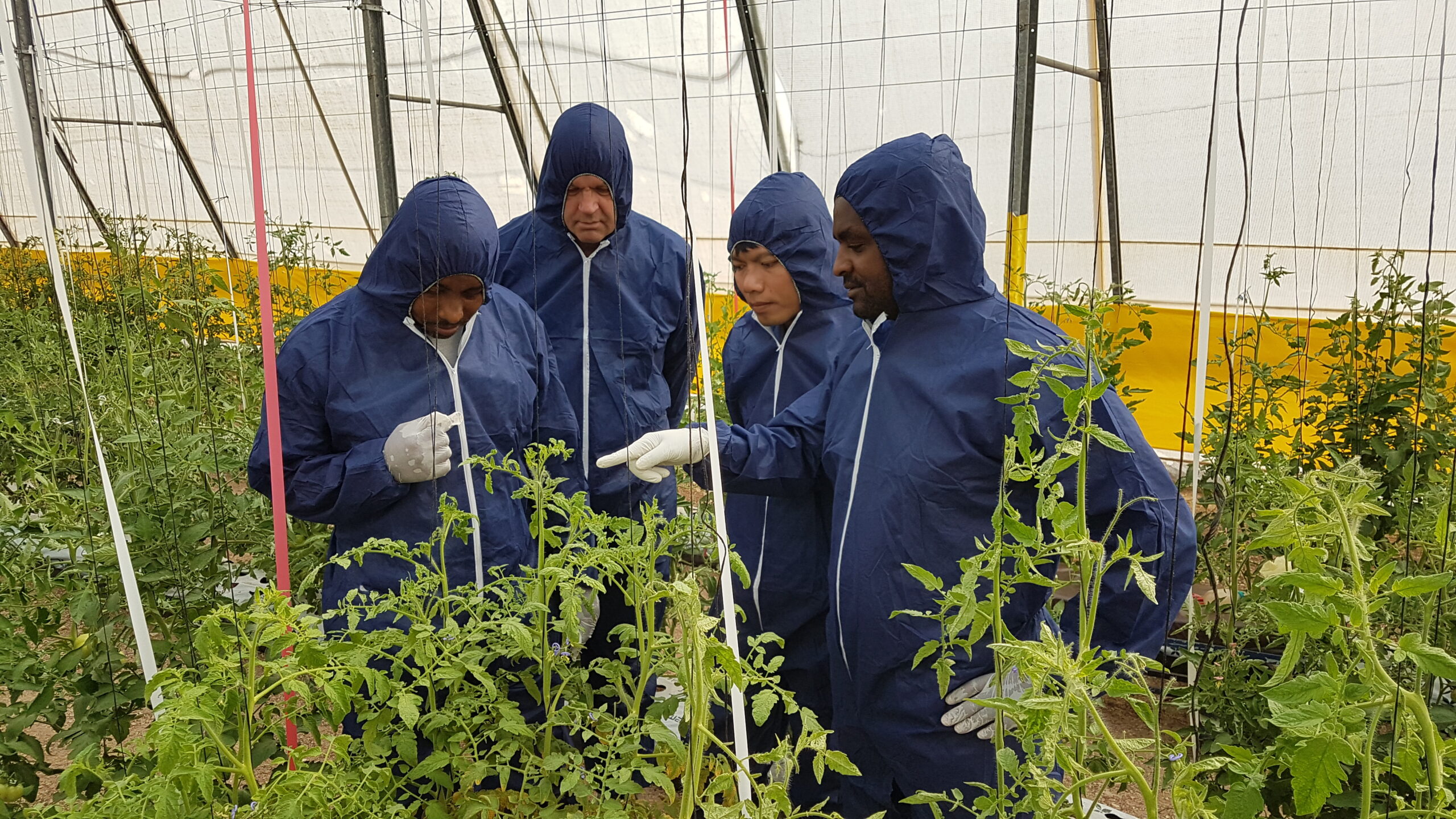
dr. an michiels is head of research & development at hazera seeds. recently, two new screening and trialling stations, that fall under her responsibility, have been opened in mexico and turkey. together with a new premises in warmenhuizen, the netherlands. “the local growers are our compass. this way we can select the best properties, adapted to their wishes. that is a great strength.”
an michiels has been working at hazera seeds for almost a year now and she enjoys it. “i grew up in a farming family. everything revolved around tomatoes. as a child, you can see how a sturdy plant that produces fruit for a whole growing season grows from a tiny tomato seed. so i know this world like the back of my hand. hazera gives the same feeling of family. technologically, as a company, we are highly developed, but ultimately it comes down to the people who do the work. the key to hazera, i think, is undoubtedly in the enthusiasm, dedication, and talent of our employees”.
background
belgian-born an michiels has – in addition to farming experience – a scientific background. she graduated in leuven as a molecular biologist. her subject was chicory. when she was 27, she was going to leave for america for six months in order to do a postgraduate study. eventually she stayed there for 14 years. “from postgraduate six month mission it developed to a post doctoral research in biotechnology at the university of maryland. for the last six years, i worked for a dutch company in rockville, maryland, called keygene inc. so i went straight from doing science to working for a company. i started the us subsidiary for keygene as ceo. it was very educational in many ways. we mainly worked on reading genetic dna codes from our vegetable crops. it was not as well developed as it is now.”
an michiels was already familiar with hazera’s parent company, limagrain. this co-operative, owned by approximately two thousand farmers in france, is, in fact, one of keygene’s shareholders. she worked for bayer for another five years between keygene and hazera.
close to the customer
hazera is part of limagrain vegetable seeds, the second largest seed breeding company in the world. as an michiels says about the new test fields in turkey and mexico: “we have branches in many places. it is very important to be close to our customers. farmers in turkey or mexico have different desires than farmers in northern europe or asia. they know the regional climate, the diseases, know the soil conditions for certain vegetables. by cooperating intensively with these farmers while also being located in their area, we can exchange information quickly and efficiently and respond adequately to developments. they are our top priority. think global, act local. there is a reason that is our mantra.”
development
at hazera, an michiels is internationally responsible for the continuing development of the seed breeding department. “my job is to bring teams together and channel their energy and knowledge in such a way that we make the very best products. our customers are always our top priority. first and foremost that is the farmer. of course we also keep the consumer and the supermarket in mind. because in that chain, from farm to plate, is where it all happens. the farmer wants the biggest yield possible, and preferably no diseases.”
when asked ‘how?’ she answers, “it’s only possible through selection. the rapidly growing knowledge in this field has helped enormously. we search for natural resistance in crops and cross them. of course, we also look at yield. healthy plants, with large yields, are of vital importance to the grower, chain and consumer. if all of that is successful, those plants go into production for seed”.
special features
the product must then be harvested and transported, and special features – such as sturdiness – are required to prevent damage and spoilage. plenty of attention is paid to this when breeding. then it’s on to the supermarket.
an michiels says, “we only sells vegetables that are fresh, look good and – perhaps most importantly – taste good. we are the source and it is nice to see your own vegetables on the shelves again. wherever you are, you always meet people who have bought or eaten something from us. we learn from that. i also want the best for my family, my children and myself. good vegetables contribute to our health. ”
challenge
an michiels thinks the biggest challenge in the future will be the climate. “it really is changing. all people in our industry can see this. it has a lot of influence on how we will have to work in the future. that is why we keep innovating. we quickly pick up new ideas for products or varieties that respond to these changes. because yes, new diseases are developing, and we are seeing more extreme rain and drought. we try to respond to this when breeding. it is also important to support the sustainable development of vegetable crops and thus limit the use of chemicals as much as possible.”
collaborating
are there even more opportunities to quickly achieve success in this area of tension?
“fortunately, we can now share unique characteristics in collaborations with other seed companies. one company thinks this, the other that… this works well and speeds up the breeding process. the scientific world is also cooperating here. ultimately, this cooperation also work in the consumer’s favor.”

